Ten Questions About Venezuela
Diez interrogantes sobre Venezuela
Gisela Kozak Rovero
In this issue of Literal, we try to offer two points of view regarding the current situation in Venezuela: that of the critics and that of the sympathizers. To this end, we have prepared 10 fundamental questions regarding the crisis, its causes, and its possible outcomes: all this, with the objective of providing a panorama the reader can use to arrive at his or her own conclusions.
1. What ignited the current conflict in Venezuela?
In early February, students at the Experimental University of Táchira (UNET) protested their lack of personal safety following the attempted rape of a female student on campus; young people at other public and private Universities in different states across the country had already been united under the same cause since January, but the difference with the Táchira protests was the repression used by security forces, including the regional police and the Boliviarian National Armed Forces. Two students were arrested and sent to the Coro jail in the state of Falcón (a very dangerous prison, as are many others in Venezuela), where excesses such as beatings and humiliations were reported. On February 12, a student march in Caracas led to the Public Ministry, demanding the liberation of these two young people, among other things. Political opposition leaders from the Democratic Unity Roundtable (MUD in Spanish) accompanied the peaceful manifestation in the capital, held concurrently with other protests around the country. After the leaders and the majority of protesters had withdrawn, there was an altercation between youths armed with blunt objects and members of the state security forces which resulted in the death of a young protestor and a member of a pro-officialist people’s collective. From that moment until today, anti-government demonstrations have multiplied nationwide: from marches, communications, declarations, and complaints to what are known as guarimbas: barricades in various cities that block circulation; in some cases these are defensive in nature, meant to protect protesters from the security forces (for example in San Cristóbal, state capital of Táchira) and in others, they are merely forms of protest (as in the midsections of southeast Caracas and other cities); they are not, incidentally, endorsed by the protesters themselves. This wave of discontent has become anarchic, given that it doesn’t obey any guidelines established by the Democratic Unity Roundtable or by any of its parties, such as Voluntad Popular –”backed by North American imperialism”, in the words of the administration. Although the MUD is behind peaceful forms of protest, as are the most visible leaders, such as Henrique Capriles Radonsky, María Corina Machado, Leopoldo López or Ramón Guillermo Aveledo, there is no single point of view about what is going on or the possible outcome. On a short-, middle-, and long-term basis, in my opinion, there could be a solidification of the leaderships visible today, emerging from the vanguards of these protests, the working-class sectors, and the parties themselves, transformed into a force of not merely electoral but also political, ideological, and social agitation.
The majority of those who have confronted state security forces are students from lower- and middle-class sectors who, because of their age, have only known one government: the revolutionary kind. When this administration does not recognize their right (and that of all Venezuelans) to protest (which the government and its followers are also doing, as well as their political and intellectual allies on the radical left), when it criminalizes them with absurd and authoritarian arguments that touch upon their alleged social affiliation, the color of their skin, or whether or not they are the children of foreigners, and when it uses brutally dismissive names like “lackeys of imperialism”, “unpatriotic”, “golpistas (coup supporters)”, racists”, fascists”, and “bourgeois”, these are more proofs that we are confronting a despotic government backed by the votes of half the population. Democracy is not just about votes, it is also about respect for minorities. Although the Bolivarian Revolution’s kinship with real socialisms of the 20th century has been explicit insofar as it identifies with the Cuban revolution, despite all the revolutionary laws that undermine it, the Constitution of the Bolivarian Republic of Venezuela (1999) is still in force.
2. Do shortages exist in the country? And if so, what is being done to resolve this?
Someone in Colombia, Ecuador, Panama, the Dominican Republic, or Brazil can buy milk, coffee, sugar, and toilet paper at any store near his or her home; we need to spend hours searching and then waiting in long lines to do so. In Venezuela, we don’t have the Cuban blockade that has served as an excuse for the dictatorial abuses of power of that island’s government; we have barrels of oil at a hundred dollars each, of which we sell around a million barrels a day to “The North American empire”. The government is a huge importer of food staples and distributes them through state networks (Mercal, PDVAL, and Bicentenario) but that is not enough, and an electronic rationing card is starting to be implemented. Internal production is insufficient given the absurd price controls, since the government’s economic inefficiency has been passed on to national private agents: the Oil State wants businesses to sell regulated items at a loss or limit their profits to a maximum of thirty percent, whereas inflation was 56% in 2013. Imagine if the Revolution did the same with a barrel of oil: instead of selling it at hundred dollars, they would sell it at eighteen. The government is selective regarding the market economy: it applies it to selling oil, but not to the rest of the economy. We are not in worse shape only because oil continues to feed us. The Revolution is a continuation of the 20th-century rentier state taken to the extreme, which allows it to toy with the fantasy that’s so attractive to intellectuals in Western Europe or the United States: popular power, self-sustained communes that will surpass both private property as well as the State itself. The reality is that oil makes these pre-modern games, which are economically irrelevant, possible.
3. To what do you attribute this series of manifestations? Are they the result of an internal conflict, or are they encouraged by external interests?
In January, Social Democrat Leopoldo López (together with Liberal Democratic representative María Corina Machado and the Mayor of the Metropolitan District, Antonio Ledezma, also a Social Democrat of the Alianza Bravo Pueblo Party) convened Citizens’ Assemblies in different cities across the country, a legal recourse provided for in the Constitution of the Bolivarian Republic of Venezuela (1999). During these meetings, #LaSalida would be discussed: the referendum calling for the annulment or resignation of Nicolás Maduro. Despite the fact that all of these processes imply electoral processes and are likewise provided for in the Constitution, from the officialist side they are considered calls for a coup d’etat. That’s why López is in prison, the leaders of Voluntad Popular (Carlos Vecchio and Antonio Rivero) are in hiding, and María Corina Macahado has been threatened with arrest –not to mention the fact that the President of the Venezuelan Parliament, Diosdado Cabello, decided to summarily strip her of her position as a representative. Likewise, Daniel Ceballos, the mayor of San Cristobal, capital of Táchira, has been arrested, and Enzo Scarano, the mayor of the San Diego Municipality in Carabobo, has been summarily judged and sentenced to ten months in prison.
The protests have involved the entire country and if, as the government says, neighborhoods don’t make barricades (although one can hear the beating of pots and pans in cacerolazo protests) it’s because the government’s paramilitary groups keep them in a state of alarm. Popular opposition leaders (Saveiro Vivas, among many others, but I mention him because of the notoriety he has achieved in recent times) testify to the fear in lower-class opposition sectors given that these paramilitary groups act with impunity. The discontent, in reality, traverses different social sectors of the country because otherwise, the 49% of votes obtained by Henrique Capriles Radonsky would have been impossible.
Given the existing problems, the conflict has strictly internal causes. To believe the story (something out of Cold War discourse) that the United States is behind the innumerable protests, behind the 49% of men and women who oppose this parody of democracy and behind the central-left coalition known as the Democratic Unity Roundtable, is to disrespect half of the citizens of my country. To call us puppets of the United States in its thirst for hegemony and oil is part of the revolutionary government’s strategy to discredit and negate us and forms part of the refrain of the academic left that writes a lot about Venezuela, but studies us very little. In any case, if connections of this sort (“opposition puppets of imperialism”) were to exist, they have not been shown beyond constant governmental attempts to discredit us, using a propaganda technique which has its roots in Goebbels.
4. From President Maduro’s point of view, the “evil triad” is represented by Capriles, López and Machado… Evil must be fought and made to disappear. How can this desire to make the opposition disappear be reconciled with democratic coexistence?
The revolutionary government became authoritarian when it began to view the opposition’s rise to executive power as a catastrophe and not as part of the country’s normal existence. It tries to impose its hegemony through cultural, educational, and communicational policies; this is based, therefore, on the certainty that the general will of an organized populace can intuit what is good for them, just as suggested in the Plan de la Patria 2013-2019, needing only the prudent guidance of the Revolution to become fully aware. If this hegemony is not achieved, it then turns to the demonization of the adversary in emotional terms, resorting to the costlier and more shameless cult of personality. The success of the Revolution is based not only on the distribution of oil income to very disadvantaged sectors, but also on the exaltation of poverty as the only noble and valuable condition existing in the country, an exaltation that is accompanied by a distortion of our Republican history that denies all democratic conquests before 1998, considering the coup d’etat of 2002 to be negative while exalting those by Chávez in 1992. Labeling an opposition as part of a coup when its leaders were not the protagonists of the authoritarian circus that removed Chávez from power for a few days in 2002 (that was the business mogul Pedro Carmona) forms part of this distortion.
This discourse of good and evil has other angles that are worthy of analysis, especially when it is translated to a secular language such as the use of the categories “left” and “right”. In Venezuela, the government has not taken up issues such as abortion; civil rights for homosexuals, lesbians, and transsexuals; or the legalization of marijuana. LGBT groups exist which supported the Revolution but have not earned any rights after fifteen years, unlike what has taken place in countries like Spain, France, and Uruguay. Homophobia is evident in the top echelon of an administration that constantly dismisses the leaders of the opposition as homosexuals. Militarism, statism, conservatism, and cult of personality don’t seem to be characteristics of the democratic left at all, yet they are very congruent with the revolutionary project.
5. What is the human rights situation?
The Foro Penal Venezolano and human rights organizations like Amnesty International and PROVEA have documented serious violations of human rights by state security forces. There have been around 1,900 arrests, thirty-nine murders (the majority protestors or people who were not even involved in the protests), hundreds of wounded, and sixty cases of torture and degrading treatment of detainees that have been substantiated before the Attorney General of the Republic. The government as well as Chavist intellectuals and leaders say that this is how state security forces behave in all the democracies of the world, but it is worth remembering that in the recent Chilean and Brazilian protests, this unfolding of deaths, wounded, searches and arrests did not take place, and also that these same intellectuals and leaders tear their hair out denouncing the repression of communist guerillas during the 1970s and university students in later years. Venezuela doesn’t have an armed conflict between two bands: it is a case of the security forces versus a civilian population whose potential for violence is miniscule in comparison to what the State is capable of.
6. The Venezuelan State has maintained that the hundreds of photo and videos circulating online, showing repression of the civil population, belong to other times and other regions. These do not represent the true situation, they say. Nonetheless, despite of censure received by CNN, live foreign television broadcasts are also showing repression. What is the actual reality being experienced in Venezuela?
I invite people to look at the February report from PROVEA; the information from Foro Penal Venezolana; the websites of newspapers like El Universal, El Nacional, Tal Cual, 2001; the online magazine Prodavinci. Officialism shines the spotlight on “irresponsible” people using social networks instead of on the already-documented facts.
7. The differences between Maduro and Chávez are many and it is reasonable to say that the latter’s charisma was not passed down. Personality aside, what improvements has Maduro’s administration accomplished?
None.
8. How are the problems of currency and ID cards being resolved? And the physical insecurity? Is Caracas among the most dangerous cities in the world.
To think that the main problem is the $3,000-dollar limit that each Venezuelan can buy at a controlled price to spend abroad doesn’t even merit analysis. The blatant corruption, national debt, public spending, waste, rentierism, and the $20,000 million dollars embezzled by businessmen through phantom companies are more reasonable explanations. Just now, an auction of dollars took place (SICAD II) in which the currency came to around 51.8 bs, when the official rate is 6.30. We are at a truly ominous moment in the Venezuelan economy.
As for the lack of safety, Minister of Justice and the Interior Miguel Rodríguez Torres recognized a rate of 39 murders for every 1,000 inhabitants, which results in the terrifying figure of 11,000 murders per year in a country of fewer than thirty million. The Observatorio Venezolano de Violencia speaks of 24,000 murders in 2013. Obviously, the Revolution has failed in this area and it offers, incidentally, totally inconsistent excuses, for example that capitalism has propitiated a culture of death. If that were true, why do we not find similar statistics of deaths by violence in Switzerland, Spain, Germany, England or New Zealand?
9. Maduro has systematically denounced the interference of foreign governments in domestic politics, but not of its most “friendly nation”: the Cuban government. Do you find this contradictory?
Cuba has given revolutionary legitimacy to the government as far as a certain radical left is concerned and Venezuela, in exchange for emulating the economy of misery that oppresses Cubans, has obtained a population control system long-proven over the decades of supremacy of the PCC. But we come from decades of party democracy and alternance in power, and this is difficult to implant without complaints. The government always talks about interference, but what it has not been able to prove is that this has had any real impact on the complex problems and conflicts of Venezuela.
10. What role is played by other Latin American governments that are allied with the Bolivarian Revolution?
Granting the government the status of a democracy. Seeing Cuba in CERLAC is like the presence of pro-North American military governments in multilateral organizations in other periods. Today it is more important to be leftist and anti-Yankee than to be democratic. How I lament that leaders whose public politics I consider to be on target, such as Bachellet, Roussef, Lula and Mujica, are remembered more for their experience as victims of pro-Yankee militarism than as leaders after the Cold War.
En esta edición de Literal intentamos ofrecer dos puntos de vista sobre la situación actual de Venezuela: la de sus críticos lo mismo que la de sus simpatizantes. Para ello hemos preparado 10 interrogantes fundamentales en torno a la crisis, sus causas y posibles salidas; todo con el propósito de brindar un panorama a partir del cual el lector podrá hacerse de un juicio propio. Aquí nuestra conversación con Gisela Kozak Rovero:
1.¿Qué desató el actual conflicto en Venezuela?
A principios de febrero, estudiantes de la Universidad Experimental del Táchira (UNET) protestaron contra la inseguridad personal a raíz del intento de violación de una alumna en el campus de esta institución; ya desde el mes de enero jóvenes de otras universidades públicas y también privadas en distintos estados del país habían protestado por el mismo tema, pero la diferencia con las protestas en Táchira fue la represión ejercida por organismos de seguridad como la policía regional y la Guardia Nacional Bolivariana. Dos estudiantes fueron detenidos y enviados a la cárcel de Coro, estado Falcón, una cárcel de alta peligrosidad como lo son parte importante de los reclusorios venezolanos y se informaron excesos como golpes y humillaciones. El 12 de febrero hubo una marcha estudiantil en Caracas que terminaba en el Ministerio Público para exigir la liberación de los jóvenes, entre otras demandas. La dirigencia política de la oposición, nucleada en la llamada Mesa de la Unidad Democrática (MUD), acompañó la protesta pacífica en la capital, simultánea a otras que se realizaron en el resto del país. Cuando la dirigencia y la mayor parte de los marchistas se habían retirado hubo un enfrentamiento entre jóvenes armados con objetos contundentes y funcionarios de las fuerzas de seguridad del estado en el cual resultaron asesinados por responsabilidad exclusiva de estos un joven opositor y un miembro de colectivos populares pro–oficialistas. A partir de este momento y hasta el día de hoy se multiplicaron las manifestaciones antigubernamentales en todo el país: desde marchas, comunicados, declaraciones y denuncias hasta las llamadas “guarimbas”, barricadas en varias ciudades que interrumpen el paso; en algunos casos tienen finalidades defensivas respecto a los cuerpos de seguridad –caso San Cristóbal, estado Táchira– y en otras de simple protesta como en los sectores medios del sureste de Caracas y otras ciudades y que, por cierto, no cuentan con el respaldo de parte de los propios opositores. Esta ola de descontento ha sido más bien anárquica pues no obedece a una organización instrumentada por la coalición de la Mesa de la Unidad Democrática o por alguno de sus partidos como Voluntad Popular “respaldados por el imperialismo norteamericano”, en palabras del gobierno. Aunque la MUD respalda la protesta pacífica al igual que los líderes más notables como Henrique Capriles Radonsky, María Corina Machado, Leopoldo López o Ramón Guillermo Aveledo, no hay un único punto de vista sobre lo que ocurre y su posible desenlace. A corto, mediano y largo plazo, en mi opinión, podrían reforzarse liderazgos hoy visibles provenientes de la vanguardia de estas protestas –el estudiantado–, de los sectores populares y de los propios partidos convertidos en fuerza de agitación no sólo electoral sino política, ideológica y social.
La mayor parte de las personas que han enfrentado a organismos de seguridad del estado son estudiantes de sectores populares y medios que por su edad sólo han conocido un gobierno: el revolucionario. Si no se reconoce su derecho a la protesta (y el de todos y todas los venezolanos) –tal como hacen el gobierno, sus seguidores, amén de sus aliados políticos e intelectuales de la izquierda radical–, sí se le criminaliza con argumentos tan absurdos y autoritarios como la supuesta pertenencia social, el color de la piel, si se es hijo o no de extranjeros y con descalificaciones tan brutales como “lacayos del imperialismo”, “apátridas”, “golpistas”, “racistas”, “fascistas” y “burgueses”, sería una prueba más de que estamos frente a un gobierno despótico respaldado por el voto de la mitad de la población. La democracia no es sólo votos sino también respeto a las minorías. Aunque el parentesco de la revolución bolivariana con los socialismos reales del siglo XX ha sido explícito por cuanto se identifica con la revolución cubana, todavía está vigente, a pesar de todas las leyes revolucionarias que la contradicen, la Constitución de la República Bolivariana de Venezuela (1999).
2 .¿Existe desabasto en el país? De ser así, ¿qué se está haciendo para resolverlo?
Una persona de Colombia, Ecuador, Panamá, República Dominicana o Brasil pueden comprar leche, café, azúcar y papel higiénico en cualquier negocio cercano a su casa; nosotros tenemos que someternos a horas de búsqueda y a largas filas. En Venezuela no existe el bloqueo cubano que ha servido de excusa para los desmanes dictatoriales del gobierno de esa isla; contamos con un barril de petróleo a cien dólares, del cual le vendemos alrededor de un millón de barriles diarios al “imperio norteamericano”. El gobierno es un gran importador de alimentos y los distribuye en las redes estatales Mercal, PDVAL y Bicentenario, pero no es suficiente y ha comenzado a instrumentar una tarjeta electrónica de racionamiento. La producción interna es insuficiente dados los controles de precios absurdos pues la incapacidad económica del gobierno es trasladada a los agentes privados nacionales: el petroestado pretende que el empresariado venda a pérdida los rubros regulados o que limite sus ganancias a máximo un treinta por cierto, pero la inflación fue del 56% el año 2013. Imagínense que la revolución hiciera lo mismo con el barril de petróleo: en lugar de venderlo a cien dólares debería venderlo a dieciocho. El gobierno es selectivo respecto a la economía de mercado: para vender petróleo la aplica, pero para el resto de la economía, no. No estamos peor porque el petróleo nos sigue alimentando. La revolución es una continuación del Estado rentista del siglo XX llevado a la exacerbación, lo cual le permite jugar con esa fantasía tan atractiva para intelectuales en Europa Occidental o en Estados Unidos: el poder popular, las comunas auto-sustentadas que superarían tanto la propiedad privada como el Estado. La realidad es que el petróleo permite estos juegos pre-modernos que económicamente son irrelevantes.
3. ¿A qué podemos atribuir esta serie de manifestaciones? ¿Son el resultado de un conflicto interno o son inducidas por intereses externos?
Para el mes de enero, el socialdemócrata Leopoldo López –junto a la diputada demócrata liberal María Corina Machado y el Alcalde Mayor del Distrito Metropolitano, el también socialdemócrata Antonio Ledezma del partido Alianza Bravo Pueblo–, convocaron a Asambleas de Ciudadanos en distintas ciudades del país, figura contemplada en la Constitución de la República Bolivariana de Venezuela (1999). En estas asambleas se discutiría #LaSalida: referéndum revocatorio, constituyente o renuncia de Nicolás Maduro. Independientemente de que todas estas opciones implican procesos electorales y son contempladas igualmente en la Constitución, desde el lado oficialista se consideran llamados al golpe de Estado. Por esta razón López está preso, los dirigentes de Voluntad Popular Carlos Vecchio y Antonio Rivero están en la clandestinidad y María Corina Machado está amenazada con detención, amén de que el presidente del parlamento venezolano, Diosdado Cabello, decidió arrebatarle sumariamente su condición de diputada. Asímismo, ha sido detenido el alcalde Daniel Ceballos de San Cristóbal, estado Táchira, y ha sido juzgado sumariamente y condenado a 10 meses de cárcel a Enzo Scarano, Alcalde del Municipio San Diego, del Estado Carabobo.
Las protestan han involucrado a todo el país y si, como dice el gobierno, lo barrios no hacen barricadas (aunque sí suenan cacerolas) es porque los grupos paramilitares del gobierno los mantienen en estado de amenaza. Dirigentes populares opositores, Saverio Vivas entre muchos otros pero a quien menciono por la notoriedad que ha logrado en los últimos tiempos, dan fe de que el miedo existe entre los sectores populares de oposición dados los grupos paramilitares que actúan con impunidad. El descontento, en realidad, atraviesa a los diferentes sectores sociales del país porque si no el 49% de votos obtenido por Henrique Capriles Radonsky hubiese sido imposible.
Dados los problemas existentes, el conflicto tiene razones estrictamente internas. Creer el cuento, propio del discurso de la Guerra Fría, de que Estados Unidos está detrás de las innumerables protestas, detrás de 49% de los hombres y mujeres que nos oponemos a este remedo de democracia y detrás de la coalición de centro–izquierda conocida como la Mesa de la Unidad Democrática, es ofender a la mitad de la ciudadanía de mi país. Declararnos marionetas de Estados Unidos en su sed de hegemonía y de petróleo es parte de la estrategia de descalificación y negación al que nos somete el gobierno revolucionario y forma parte de los estribillos de la izquierda académica que poco estudia y mucho escribe sobre Venezuela. En todo caso, de existir esas conexiones tipo “oposición marioneta del imperialismo” no han sido demostradas más allá de la constante descalificación gubernamental, en uso de un recurso propio de la típica propaganda de raíz goebbeliana.
4. Desde la perspectiva del presidente Maduro, la “trilogía del mal” está representada por Capriles, López y Machado… Al mal se le debe combatir y se le debe desaparecer. ¿Cómo conjugar el deseo de desaparecer a la oposición y la convivencia democrática?
El gobierno revolucionario se convirtió en autoritario cuando empezó a entender el ascenso al poder ejecutivo de la oposición como una catástrofe y no como parte de la vida normal del país. Intenta imponer su hegemonía por medio de sus políticas culturales, educativas, comunicacionales; se basa, entonces, en la certeza de que la voluntad general del pueblo organizado intuye lo que le conviene, tal como plantea el Plan de la Patria 2013-2019, pero sólo le hace falta la prudente guía de la revolución para darse cuenta con plena conciencia. Al no lograr esta hegemonía apela entonces a la demonización del adversario en términos emocionales y echando mano al culto a la personalidad más costoso y descarado. El éxito de la revolución se basa no sólo en el reparto de la renta petrolera en sectores muy desfavorecidos sino también en la exaltación de la pobreza como la única condición noble y valiosa existente en el país, exaltación que se acompaña de una distorsión de nuestra historia republicana que niega todas las conquistas democráticas anteriores a 1998, considera negativo el golpe de Estado del año 2002 y exalta los dados por Chávez en 1992. La calificación de golpista a una oposición cuyos dirigentes no son los protagonistas, estilo empresario Pedro Carmona, de la payasada autoritaria que sacó a Chávez del poder por un par de días en 2002, es parte de esta distorsión.
Este discurso del bien y el mal tiene otras aristas dignas de análisis, sobre todo cuando se traduce a un lenguaje secular como es la utilización de las categorías izquierda y derecha. En Venezuela el gobierno no ha hecho suyos temas como el aborto, los derechos civiles para homosexuales, lesbianas y transgéneros o la legalización de la marihuana. Existen grupos LGBT que apoyan la revolución pero no han obtenido reivindicaciones después de 15 años, a diferencia de lo ocurrido en países como España, Francia y Uruguay. La homofobia es evidente en el alto gobierno que constantemente descalifica como homosexuales a dirigentes de la oposición. Militarismo, estatismo, conservadurismo y culto a la personalidad no parecen características de la llamada izquierda democrática pero son muy congruentes con el proyecto revolucionario.
5. ¿Cuál es la situación de los derechos humanos?
El Foro Penal Venezolano y organizaciones de derechos humanos como Amnistía Internacional y PROVEA han documentado graves violaciones a los derechos humanos por parte de los organismos de seguridad del Estado. Ha habido alrededor de 1900 detenciones, 39 asesinados –la mayoría a opositores o personas que ni siquiera estaban involucradas en las protestas–, centenares de heridos y 60 casos sustanciados ante la Fiscalía General de la República de tortura y tratos degradantes a personas detenidas. Gobierno, intelectuales y dirigentes chavistas indican que así se comportan las fuerzas de seguridad del Estado en todas las democracias del mundo, pero valdría la pena recordar que en las manifestaciones chilenas y brasileñas de los últimos tiempos no hubo este despliegue de muertos, heridos, allanamientos y detenciones, y que esos mismos intelectuales y dirigentes se rasgan las vestiduras denunciando la represión a la guerrilla comunista de los años sesenta del siglo pasado y a los estudiantes universitarios en fechas posteriores. Venezuela no tiene un enfrentamiento armado entre dos bandos; se trata de los cuerpos de seguridad contra una población civil cuyo potencial de violencia es minúsculo en comparación con el Estado.
6. El Estado venezolano ha asegurado que los cientos de fotografías y videos que circulan en la red, mostrando la represión contra la población, pertenecen a otros momentos y otras regiones. Esa no es la verdadera situación de Venezuela, dicen. Sin embargo, las emisiones en vivo de las cadenas de televisión extranjeras, pese a la censura a CNN, muestran también esa represión. ¿Cuál es la verdadera realidad que vive Venezuela?
Invito a ver el informe del mes de febrero de la organización PROVEA; las informaciones del Foro Penal Venezolano; las páginas WEB de periódicos como El Universal, El Nacional, Tal Cual, 2001; la revista virtual PRODAVINCI. El oficialismo coloca el foco en irresponsables en las redes sociales y no en los hechos ya documentados.
7. Las diferencias entre Maduro y Chávez son muchas y es razonable que el “carisma” no se herede. Sin embargo, más allá de la personalidad, ¿qué mejoras ha traído el gobierno de Maduro?
Ninguna.
8.–¿Cómo se está resolviendo el problema de las divisas y los raspa tarjetas? ¿Y de la inseguridad? Caracas está dentro de las ciudades más peligrosas del mundo.
Pensar que el gran problema es el cupo de 3000 dólares que cada venezolano(a) puede comprar a precio controlado para gastar en el exterior no merece el más mínimo análisis. La corrupción desatada, el endeudamiento, el gasto público, el despilfarro, el rentismo y los 20000 millones de dólares que estafaron los empresarios con empresas fantasmas son una explicación más sensata. En este momento se acaba de hacer una subasta de dólares (SICAD II) en la que la divisa llegó a alrededor de bs. 51, 8 cuando la oficial es a 6,30. Estamos en un momento realmente grave de la economía venezolana.
En cuanto a la inseguridad, el ministro del Interior y Justicia Miguel Rodríguez Torres reconoció una tasa de 39 asesinatos por cada 100000 habitantes, lo cual da la aterradora cifra de 11000 asesinatos al año en un país de menos de treinta millones de habitantes. El Observatorio Venezolano de Violencia habla de 24000 asesinados en el año 2013. Evidentemente, la revolución ha fracasado en el tema y esgrime, por cierto, una excusa totalmente inconsistente como que el capitalismo propicia una cultura de la muerte. Si es así, por qué en Suiza, España, Alemania, Gran Bretaña o Nueva Zelandia no encontramos semejantes cifras de fallecimientos violentos.
9. Maduro ha denunciado sistemáticamente la injerencia de gobiernos extranjeros en la política interna de Venezuela, no así la del “pueblo amigo”: el gobierno cubano. ¿No existe una contradicción al respecto?
Cuba le ha dado legitimidad revolucionaria al gobierno dentro de cierta izquierda radical y Venezuela, a cambio de darle aire a esa economía de la miseria que oprime a los cubanos, ha obtenido un sistema de control de la población largamente probado en décadas de supremacía del PCC, lo que pasa es que nosotros veníamos de décadas de democracia partidista y alternabilidad en el poder y es difícil implantarlo sin quejas. El gobierno siempre habla de injerencia pero lo que no ha podido probar es que ésta tenga un impacto real en las complejas problemáticas y en los conflictos de Venezuela.
10. ¿Qué papel desempeñan los gobiernos latinoamericanos aliados de la revolución bolivariana?
El de concederle al gobierno el estatus de una democracia. Ver a Cuba en la CELAC es equivalente a la presencia de gobiernos militares pro–norteamericanos en otra época en organismos multilaterales. Hoy es más importante lucir de izquierda y anti-yanqui que ser demócrata. Cómo lamento que líderes cuyas políticas públicas considero acertadas como Bachellet, Roussef, Lula y Mujica recuerden más sus tiempos de víctimas del militarismo pro-yanqui que su presente como líderes posteriores a la guerra fría.


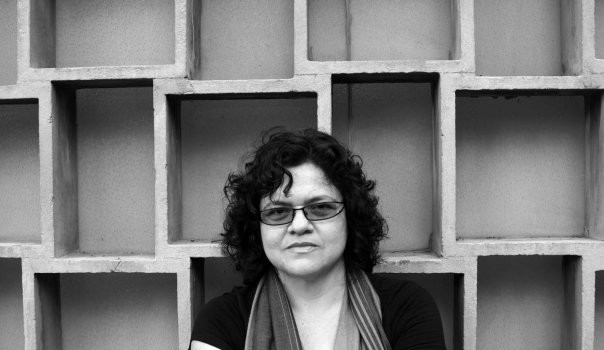

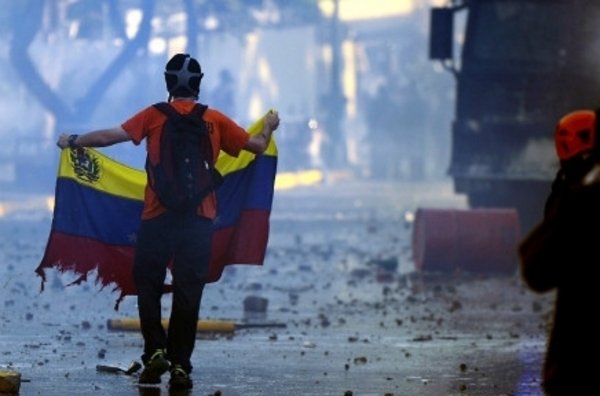
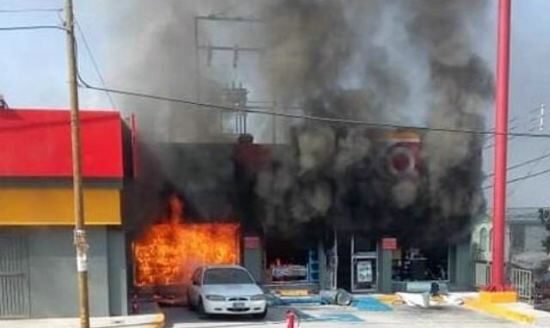
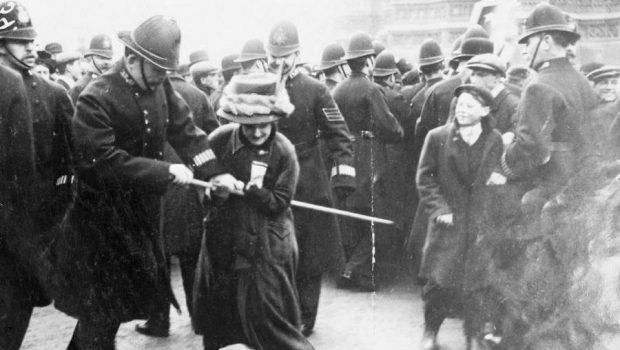
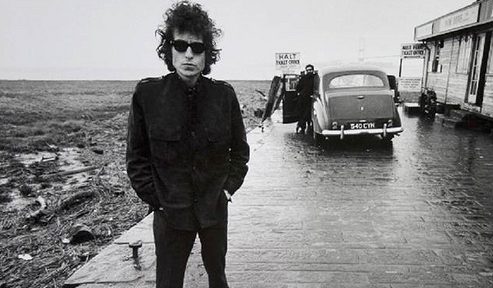
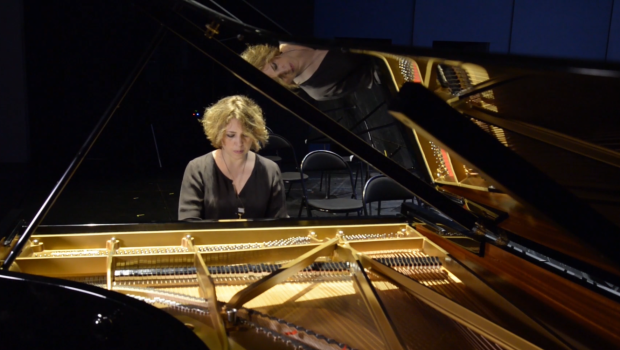
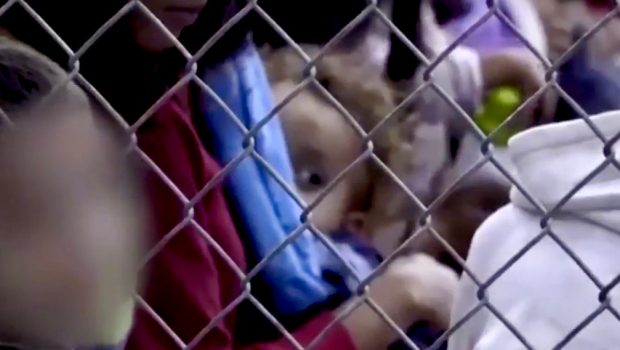
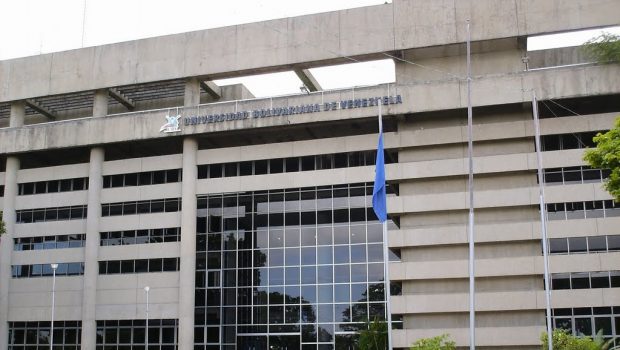
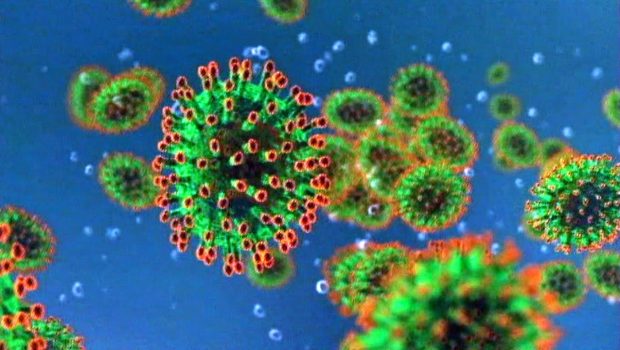
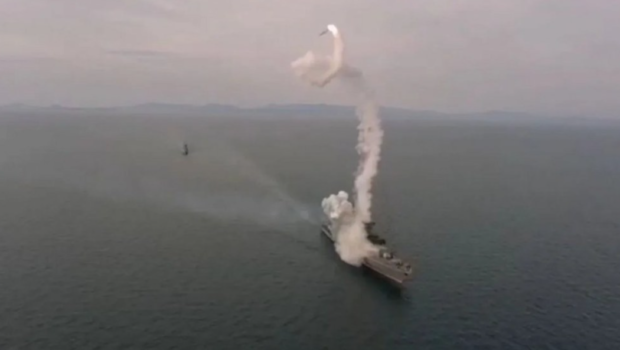
My Father was murdered by a low-life Venezuelan Scumbag. The murderer got 30 years in jail for the crime. My Father is buried in a cemetery in Maracaibo.
How much will the Venezuelan Government charge me to have his remains sent to me in the USA?